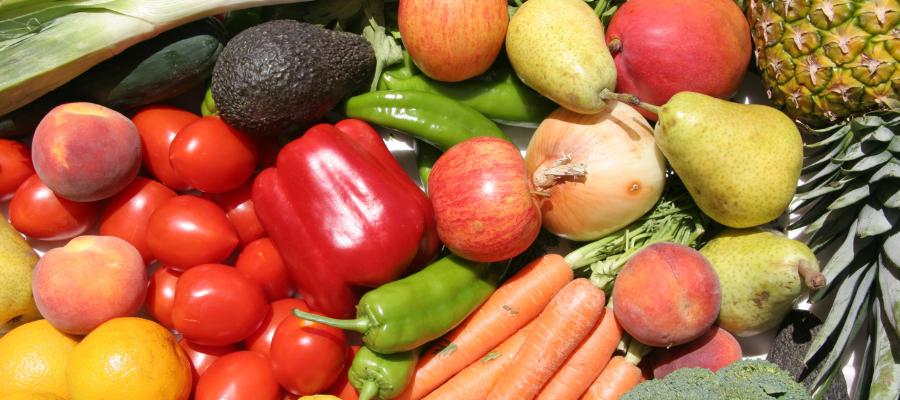🕒 Article read time: 2 minutes
BTOM teething problems: Government must clarify classification of fruit and vegetables given risk to supply chain, says Logistics UK

Yesterday saw the introduction of the first stage of the Border Target Operating Model (BTOM), which sets out a new approach to security controls (applying to all imports), and sanitary and phytosanitary controls (applying to imports of live animals, animal products, plants and plants products) at the UK’s border with the EU.
It has been developed in collaboration across the UK, Scottish and Welsh Governments, and engagement with officials from the devolved administration in Northern Ireland, but is already causing consternation in the logistics sector with the government indicating that fresh fruit and vegetables are to be reclassified as “medium risk” goods for border inspections.
Logistics UK is calling on the government to address the confusion caused by this and publish its assessment of the impact on the UK’s supply chain.
“Logistics businesses have been pressing government for clarity on how border checks will be done on freight from the EU since the Brexit vote,” says Logistics UK’s Head of Trade, Nichola Mallon.
“With only days to go until the first stage of the BTOM was introduced, why did the government provide conflicting and confusing information that will slow down the preparedness of the UK’s businesses to trade effectively with their EU suppliers?”
On 24 January 2024, the Department for Environment, Food and Rural Affairs (DEFRA) stated that it was changing its classification of how fruit and vegetable imports will be handled after 31 October 2024, meaning they will be subject to physical checks before being passed to cross the UK border.
Since then, the government has rowed back, stating that some fruit and vegetables from the EU are “temporarily being treated as low risk” and that “further information related to the categorisation of fruit and vegetables from the EU will be available shortly.”
No rationale has been provided for this reclassification of fresh produce or any further detail given. And, as Ms Mallon continues, this confusion is preventing businesses from preparing effectively for the country’s new trading relationship with the EU.
“In selling the BTOM to industry, the government stated that 90% of all sanitary and phyto-sanitary (SPS) commodities – those of plant or animal origin – are low risk, meaning they wouldn’t require an Export Health Certificate, be subject to physical checks or hit with a higher import charge,” explains Mallon.
“This change in classification will add significant time and costs to this critical “just in time” supply chain. Logistics businesses are already struggling with rising inflation, as they operate on particularly narrow margins. These increased costs can only add to inflation and at a time when food inflation remains high.
“Our members have kept the UK stocked with goods throughout the pandemic and have worked tirelessly to prepare for a post-Brexit world. They should not be given conflicting information and kept in the dark until the eleventh hour.
“Our members deserve better from government,” Mallon concludes. “We are seeking urgent clarification on this issue and for decisions on all outstanding issues to be made public, including the import charge government will apply at its border control posts.”
*www.logistics.org.uk/campaigns
Published On: 01/02/2024 14:30:00

Comments Section
If you are a Logistics UK member login to add comments.
In brief
Visku hosts special Chambers of Commerce event
Visku, the supply chain consulting and warehouse solutions provider, hosted a special event for the British Chambers of Commerce (BCC) at its Wellingborough HQ on 24 January where Jonathan Reynolds, the Shadow Secretary of State for Business and Trade, set out Labour’s plan for small businesses.
The Chamber meeting was chaired by its Director General, Shevaun Haviland, and included a range of guests from across the UK. The Shadow Secretary of State for Business and Trade outlined his blueprint to stimulate and support the growth of small businesses. Highlights of the plan include: introducing legislation to tackle late payments, replacing business rates, removing barriers to export and enabling better access to finance.
After thanking Visku for hosting the event, Jonathan Reynolds said: “I want to make this a genuine conversation with business and that’s why I am grateful to the Chambers of Commerce for putting this event on and it underlines the great strength of the Chamber network.
“Visku has responded to market conditions, demanding flexibility in warehousing, scaling up and down and for all types of businesses, small and large,” added Julian Burnett, CEO of Visku.
“We have built an extensive network of nationwide partners to deliver fast, agile, on-demand warehousing space. Facilitating this, Visku has also invested in a digital platform, enabling customers and partners to leverage a unique logistics marketplace.”
More information on Visku’s vision for the future can be found at www.visku.com
DP World offers UK importers £100 per box as modal shift incentive
The operator launched its Modal Shift Programme in September on imports unloaded in Southampton, with an incentive of £70 for each box transferred to a rail head within 140 miles of the port, rather than leaving by truck, and has now raised that to £1,000 per box.
It said that since the MSP was launched, the proportion of boxes leaving Southampton by rail had increased from 21% to 27%, and DP World claimed the programme had the potential to eliminate 30,000 tonnes of CO2 emissions a year.
Latest articles
Legislation update - June 2025
Consultations which opened in June 2025
Read time: 5 minutes
View article
Generation Logistics Case Study
Naveed Rafeeq, Graduate Software Engineer - Unipart.
Read time: 2 minutes
View article
Drone Rangers to monitor UK infrastructure
The U.K. Civil Aviation Authority (CAA) has given authority to drone consulting firm Drone Major to conduct the U.K.’s first beyond visual line of sight (BVLOS) drone flights over the U.K.’s critical national infrastructure, initially some stretches of railway.
Read time: 2 minutes
View article